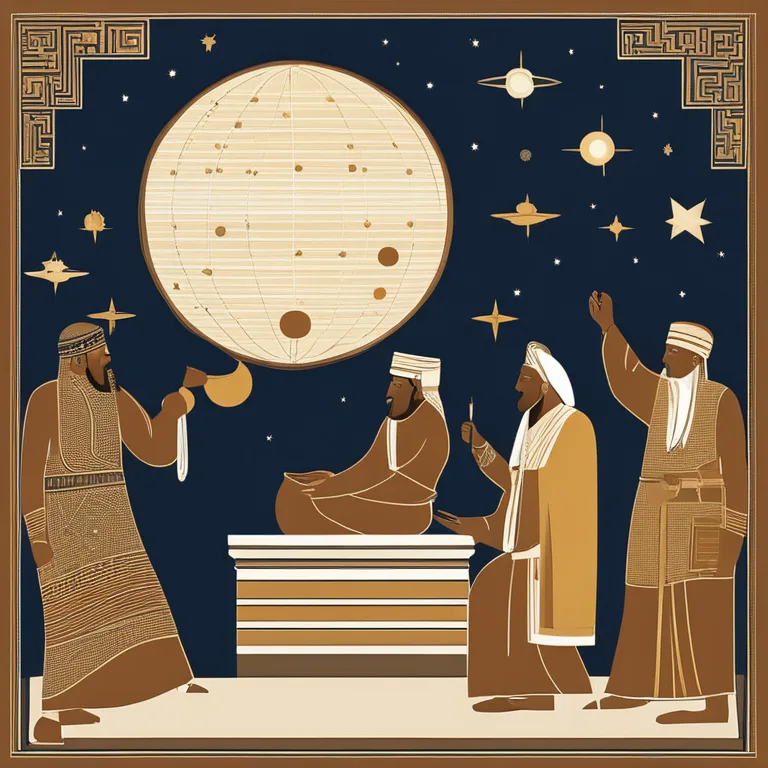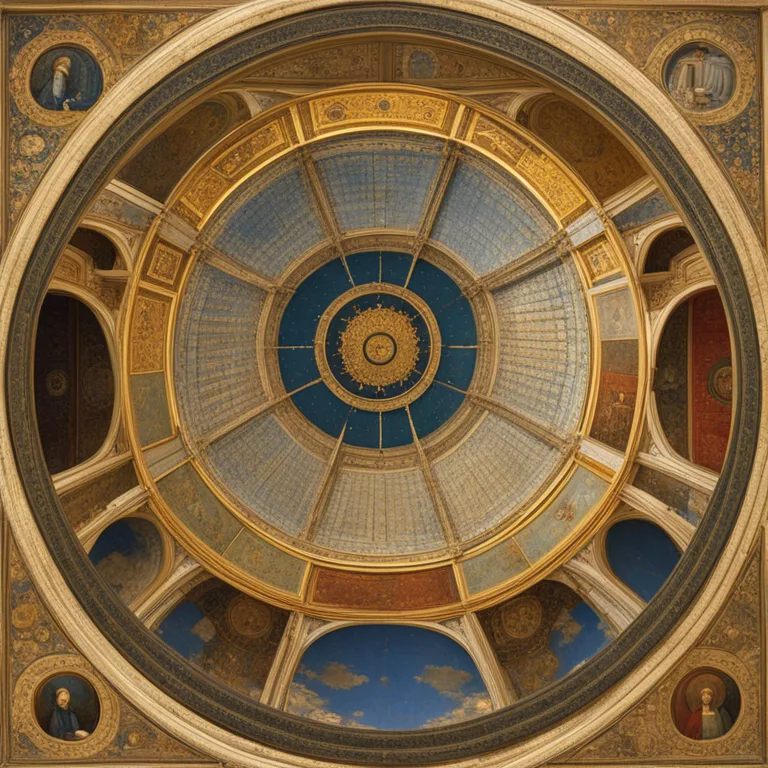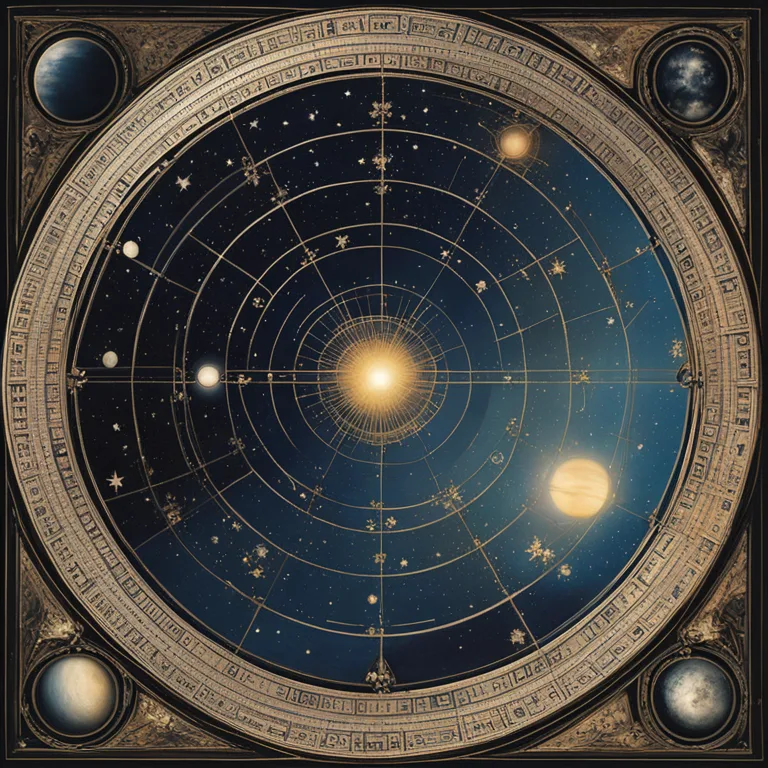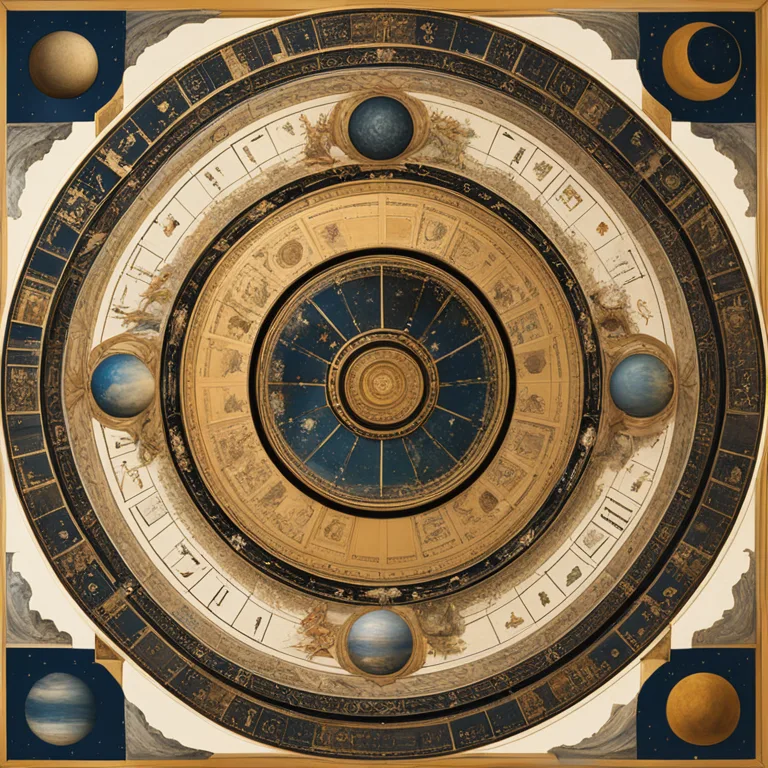
The Ancient Beginnings Of Astrology
Delve into the ancient beginnings of astrology and discover how this mystical practice captured the human imagination, from Babylonian times to the modern-day.
article by Priya Deshmukh
The Dawn of Astrology
Astrology, an ancient art that seeks to interpret celestial patterns in relation to earthly events, has fascinated humanity for millennia. Its roots stretch back to the cradle of civilization, where the earliest humans gazed upward, awestruck by the enigmatic dance of the stars and planets. These celestial movements were eventually correlated to seasonal changes, natural phenomena, and human affairs, planting the seeds for what would become a complex system of divination and guidance. Over time, this connection between heaven and earth was formalized, leading to the birth of astrology as it was known in antiquity.

Babylonian Beginnings
Astrology's genesis is closely linked to the ancient Babylonians around the 2nd millennium BCE. These pioneers painstakingly charted the movements of celestial bodies and ascribed divine significance to them. Priests, the learned scholars of the time, recognized patterns in the heavens and related these to terrestrial events with such conviction that celestial observations became integral to agricultural planning and royal decision-making. The practice of documenting planetary movements gave rise to the zodiac, a critical element in astrological practice, containing the celestial coordinates that still guide horoscopes today.

Grecian Philosophical Influence
The philosophical refinement of astrology took a leap forward with the Greeks, who seamlessly blended Babylonian knowledge with their philosophic traditions around the 1st millennium BCE. Hellenistic thinkers, most notably Ptolemy, penned influential works that fortified astrology with a cosmological backbone. They postulated that the universe operates on sympathy and resonance, where celestial spheres influence terrestrial life through a cosmic connection. It was during these times that astrology began to be used for personal insight, charting not just the fates of nations, but also individual destinies.

The Medieval and Renaissance Expansion
Astrology reached new heights during the Medieval and Renaissance periods, spreading through the Islamic world and into Europe. Arabian and Persian scholars enriched the practice with new insights and translated many Greek texts. By the late medieval period, European universities included astrology in their curricula, reflecting its respected status. Royalty and common folk alike relied on astrologers for predictions on matters from marriage to medicine, although the practice faced the scrutiny of religion and emerging scientific thought.

The Modern Astrology Revival
As the Age of Enlightenment redefined many aspects of human knowledge, astrology's influence waned. However, it saw a notable resurgence in the 20th century, transforming into the psychological and spiritual practice we recognize today. In 2024 and beyond, astrology continues to be sought for self-understanding and future insights. Modern astrologers craft horoscopes not as unchangeable fate but as tools for self-reflection, aligning celestial trends with personal growth and relationship compatibility.
Astrology in the Digital Age
The digital era has revolutionized astrology, making detailed personal readings accessible to the masses. The rise of apps and online services caters to a global audience seeking daily, monthly, or yearly horoscopes, as well as intricate birth chart analyses. The meticulous work of ancient astrologers now fuels complex algorithms, allowing for real-time updates on planetary transits and their potential impacts well into the future.
Published: 12/29/2023
Modified: 1/4/2024
More predictions
Come back here soon to learn more about yourself and your future


The Significance Of Your Moon Sign In Astrology
Delve into the significance of your Moon Sign and how it shapes your emotional landscape and inner self in astrology.


Astrology: The Influence of Your Moon Sign
Discover the profound impact of your Moon sign on emotional responses and inner life in the astrological landscape.


Astrological Sign Compatibility: Love among the Stars
Discover the dynamics of love and friendship through the lens of astrological sign compatibility. Find out which zodiac pairs harmonize and those that challenge one another.